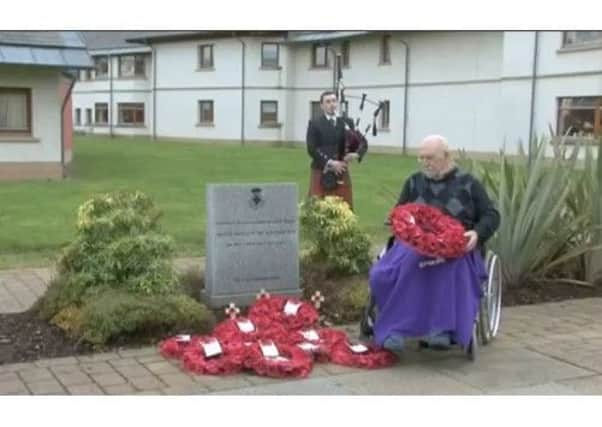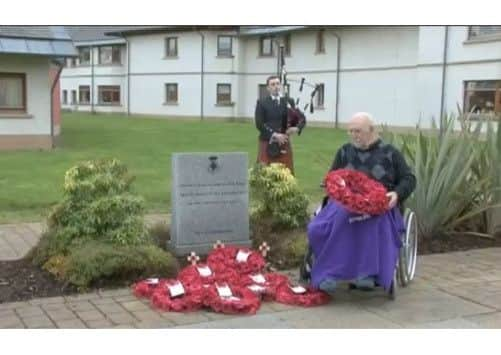WWI pipe music to be performed again


To mark the launch of the Pipers and Pipe Music of the Great War project, Mathew Anderson, 19, Pipe Major of the Scottish Pipers’ Association played two tunes from the conflict to veterans at Erskine Hospital, which has been offering support and care to ex-servicemen and women since 1916.
Funding of £7,500 from the Heritage Lottery Fund will help deliver five concerts at The College of Piping in Glasgow with free admission for the audience.
Advertisement
Hide AdThe project will help tell the story of the 2,500 pipers who took part in the First World War, 500 of whom died with a further 600 wounded.


Their role to lift spirits, inspire soldiers before battle and lament the dead will be told while many tunes composed in France and as far as the Middle East during the conflict will be played. The stories behind the pipers who wrote them will also be unveiled.
Hugh Anderson, vice president of the Scottish Pipers’ Association, said: “There are lots of tunes out there that were written specifically for battles or perhaps comrades that were killed or something that’s happened, and they were played back then but a lot of them have been forgotten about because they simply didn’t reach publication.”
He explained that on the battlefield pipers would use scraps of paper or anything they could find to write on to record new tunes, but some may have just been memorised at the time.
Mr Anderson said: “Some of the tunes are still played today but there are lots of tunes that have been forgotten about and there are pieces of paper and bits in army museums all over the country, and we’ve been researching through those to find the tunes and find out about the pipers.
“It was an important part of the war and I think it’s important to remember these people and the tunes that they wrote and the tunes that they played.”
Advertisement
Hide AdAmong the audience at Erskine Hospital was Jimmy Groat, 88, originally from Orkney, who served in the Royal Navy during the Second World War between 1942 and 1947.
Mr Groat loves the sound of the pipes and enjoyed the performance. He said: “It means a great deal to me. It gets my blood up, you want to get marching.”
Advertisement
Hide AdHe also explained how it made him feel to hear the two tunes from the First World War, adding: “(I feel) Proud of those people, those men that have gone before us.
“They were doing their best for our country, dying for our country, it makes us proud to be Scots.”
Colin McLean, head of the Heritage Lottery Fund (HLF) in Scotland, said: “The First World War changed the face of modern history, touching the lives of everyone in this country and beyond.
“HLF is committed to this project which, through bringing to life the role of our brave pipers and the music they composed, will create a deeper understanding of the heritage of the conflict.”